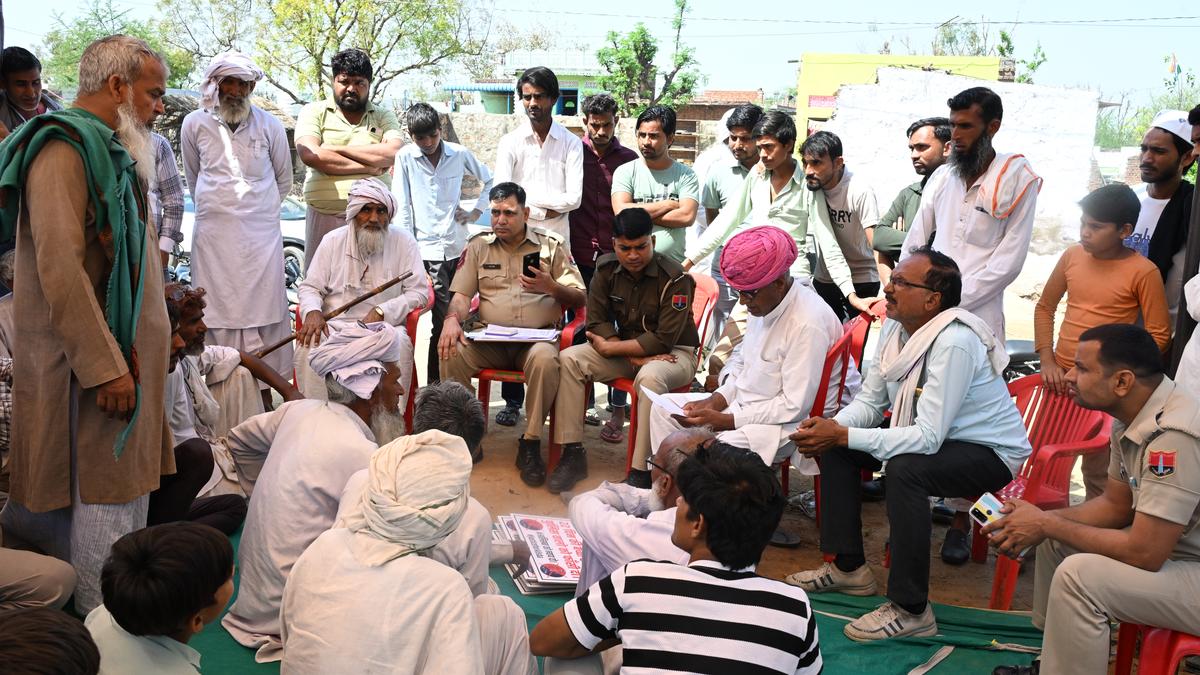In the early hours of March 2, the quiet village of Teliyabas in Raghunathgarh, located in Alwar district, Rajasthan, saw a flurry of activity as two police SUVs raced through its narrow lanes. The police were on a mission to apprehend a suspected cyber fraudster whose location was pinpointed by the cyber cell in the district headquarters. The chase led them to the home of Razida and Imran Khan, a young couple residing in a modest single-room dwelling with their extended family.
As the police entered their home in pursuit of the suspect, chaos ensued. Without a female officer present, the officers aggressively searched the premises, climbing on furniture and disturbing the couple’s belongings. However, their search yielded no results, and Imran was released after being questioned about the whereabouts of a particular smartphone. It was only after the police left that the couple made a devastating discovery – their one-month-old daughter Alisba was lying lifeless on the cot, a tragic consequence of the officer’s actions while searching the room.
Teliyabas, a village in the Mewat region, has gained notoriety as a hotspot for cybercrime, with a significant number of cases reported in the area. The villagers, predominantly from the Meo community, have been at the receiving end of police raids and crackdowns targeting cyber fraudsters. The incident involving Alisba’s death has sparked outrage among the villagers, leading to protests and demands for justice.
Former Minister Nasru Khan, along with other community members, has been vocal in condemning the police’s actions and calling for accountability. The tragedy has put a spotlight on the socio-economic challenges faced by the Meo community, including high dropout rates among students and widespread unemployment.
Despite the grief and anguish experienced by the Khan family, they have received support from various quarters, including political figures and media personalities. The incident has brought to light the plight of innocent individuals caught in the crossfire of cybercrime crackdowns and the need for a more nuanced approach to addressing the underlying issues.
Meanwhile, discussions among village residents shed light on the pervasive nature of cyber fraud and the challenges faced by law enforcement in combating such crimes. The lack of proper investigation and accountability in dealing with cybercriminals has led to a sense of disillusionment among the community members.
At the heart of the matter lies the need for a comprehensive strategy to tackle cybercrime effectively, while also ensuring that innocent individuals are not unjustly targeted. The tragic death of Alisba serves as a stark reminder of the consequences of hasty and inept law enforcement actions and the urgent need for systemic reforms to prevent such incidents in the future.
As the investigation into Alisba’s death unfolds, the calls for justice and accountability grow louder, signaling a turning point in the fight against cybercrime in the region. The events in Teliyabas have sparked a national conversation on the need for a more humane and empathetic approach to law enforcement, one that prioritizes the protection and well-being of all members of society.


